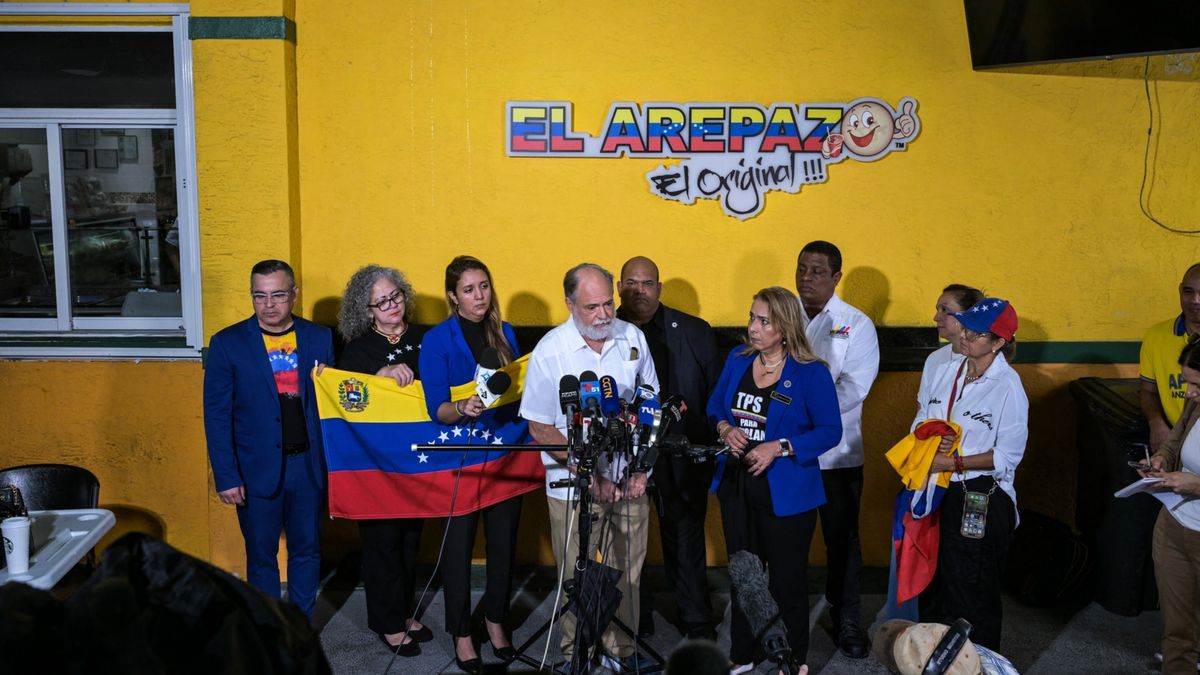Examining the Impact of Trump’s Policy Shift on Venezuelan Migrants
The recent decision by the Trump administration to eliminate protections for Venezuelan migrants raises critical questions about its implications for U.S.-Latin American relations. This policy shift comes amid a complex backdrop of humanitarian crises, economic instability, and political turmoil in Venezuela. Experts warn that the ramifications of this change could exacerbate an already tense diplomatic landscape, potentially igniting conflicts and humanitarian concerns.
The Context of Venezuelan Migration
To understand the impact of Trump’s policy shift on Venezuelan migrants, it’s essential to grasp the context of why so many people are fleeing Venezuela. Over the past decade, Venezuela has faced a catastrophic decline in living conditions due to a combination of economic mismanagement, political repression, and social unrest. Hyperinflation, widespread shortages of food and medicine, and violent crime have driven millions to seek refuge in neighboring countries and beyond.
According to the United Nations, as of 2023, over six million Venezuelans have left their country. Many sought asylum in Colombia, Peru, and other Latin American nations, often facing challenges such as xenophobia, limited resources, and inadequate support systems. The United States had previously offered Temporary Protected Status (TPS) to Venezuelans, allowing them to live and work legally in the country while their homeland remained in crisis. However, the recent elimination of these protections poses significant threats to their safety and stability.
The Policy Shift: A Closer Look
The Trump administration’s decision to revoke TPS for Venezuelan migrants is not merely a bureaucratic adjustment; it signals a broader shift in U.S. immigration policy towards Latin America. By removing these protections, the administration is effectively forcing Venezuelan migrants to either return to a dangerous situation or remain undocumented in the U.S., which could lead to increased vulnerability and exploitation.
This policy change reflects a tougher stance on immigration, prioritizing national border security over humanitarian considerations. Critics argue that this shift not only jeopardizes the lives of Venezuelan migrants but also undermines the U.S.’s moral standing in advocating for human rights globally. It raises the question: Is the U.S. prepared to accept the humanitarian fallout of such a policy?
Potential Impacts on U.S.-Latin American Relations
The implications of Trump’s policy shift extend beyond the immediate concerns of Venezuelan migrants. Relations between the U.S. and Latin American countries, already strained due to various geopolitical factors, could suffer further deterioration. Several dimensions of this potential rift warrant examination:
- Increased Anti-American Sentiment: As more Venezuelans are forced to return home or live in fear of deportation, anti-American sentiment may grow within Venezuela and across Latin America. Countries may view the U.S. as indifferent to the suffering of its people, which could foster deeper alliances with rival nations such as Russia and China.
- Strain on Regional Cohesion: Countries currently hosting Venezuelan migrants could see increased strain on their resources. This could lead to calls for international support from the U.S. and other Western nations. If the U.S. fails to respond adequately, it might weaken its influence in the region.
- Humanitarian Crises: The potential for humanitarian crises will escalate as deported individuals return to Venezuela, exacerbating the already dire conditions. This could lead to increased migration pressure on neighboring countries, forcing them to react, potentially without U.S. support.
Humanitarian Concerns and Global Responsibility
The humanitarian implications of Trump’s policy shift on Venezuelan migrants cannot be overstated. The decision to revoke TPS places vulnerable populations at risk, which raises ethical questions about the U.S.’s role in international humanitarian efforts. The global community is increasingly interconnected, and actions taken by one country can have far-reaching consequences.
Some argue that the U.S. has a moral obligation to protect those fleeing persecution and violence. By eliminating protections for Venezuelan migrants, the U.S. not only jeopardizes their safety but also sends a message that it is less committed to humanitarian principles. This could set a troubling precedent for future immigration policies concerning other vulnerable populations.
Perspectives from Experts
Experts in international relations and immigration policy express deep concern about this shift. They warn that the ramifications could lead to a broader international rift, particularly in how countries in Latin America perceive U.S. policies. For instance:
- Dr. Maria Elena Gonzalez: A professor of Latin American Studies, she notes that this policy could alienate not only Venezuelans but also other migrant groups who see the U.S. as a beacon of hope. “The decision signals a retreat from traditional American values of support and refuge,” she states.
- James O’Connor: An immigration policy analyst, he emphasizes the need for a more humanitarian approach. “This policy shift risks creating a crisis not only for Venezuelans but also for regional stability,” he argues, calling for renewed discussions on comprehensive immigration reform.
Looking Ahead: Opportunities for Change
In facing such challenges, there lies an opportunity for the U.S. to re-evaluate its approach to both immigration and foreign policy. Here are some potential pathways forward:
- Reinstating TPS: A reconsideration of TPS for Venezuelan migrants could signal a commitment to humanitarian values and strengthen diplomatic ties with Latin American nations.
- Collaboration with Regional Partners: The U.S. can work alongside Latin American countries to create a comprehensive response to the Venezuelan crisis, sharing resources and strategies to support migrants.
- Engagement in Dialogue: Open conversations with Venezuelan diaspora communities can provide valuable insights into their needs and concerns, facilitating more effective policies.
Conclusion
In summary, Trump’s policy shift on Venezuelan migrants poses significant challenges not only for the affected individuals but also for U.S.-Latin American relations at large. The potential for increased tension and humanitarian crises looms large, highlighting the urgent need for a reassessment of immigration policies grounded in compassion and respect for human rights. As the landscape evolves, the hope remains that constructive dialogue and collaboration can pave the way for a more humane approach to migration and international relations.
See more BBC Express News

